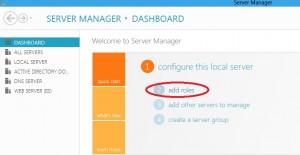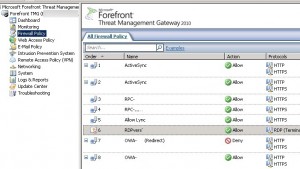Jun
17
2013
We will show in this post how you can gather evidence of a potential remote attack on your Windows computer with some Powershell one-liners. This is done by analyzing the security log with the Get-EventLog cmdlet and by displaying active remote connections with the Netstat command.
Read more »
Apr
23
2013
We will describe in this post how to connect to an Oracle database using Powershell cmdlets, this database hosts HR data. We will check if every employee has an Exchange 2010 mailbox. The common key between both systems (Oracle and Exchange) has to be a filterable attribute for performance issues when querying the Exchange mailboxes. Exchange’s attribute is CustomAttribute13 in our example and the corresponding Oracle value is HRCODE.
Read more »
Jan
06
2013
The root update package KB931125, when applied might break the authentication process on servers using certificate based authentication: This problem was reported for LDAP over SSL authentication on a Domain Controller, IIS authentication on a webserver and IAS authentication on a Radius server (called Network Policy Server under Windows 2008). The symptoms, patch and workarounds of this issue are explained in this KB. The patch is only available under Windows 2003 and the root update package (KB931125) cannot be uninstalled via WSUS once applied.
Read more »
Jul
31
2012
We will describe in this post how to remove stale Exchange ActiveSync device partnerships. You can already find a script on the MS Exchange forum that performs this operation, but with that method the deletion can fail in some cases.
Read more »
Jun
28
2012
We will see in this post how to automate the AD database (NTDS.dit) offline defragmentaion with Powershell under Windows 2008 server. With Windows 2008 server, you no longer need to restart the DC in DSRM mode, you just need to stop the Active Directory service.
Read more »
Apr
19
2012
We will describe in this post how to enable the mobile access to your mail system for only some employees. Only users who belong to the LDAP389-ACTIVESYNC will be able to use the ActiveSync protocol and set up their mailbox on their smartphone. This authorization will be managed by a Powershell script launched by a scheduled task.
Read more »
Mar
22
2012
We will describe in this post how to make an inventory of your physical and VMWare virtual machines running Windows Server. For each virtual machine, we will also retrieve on which physical host the server is running. If you have a VMWare virtualized environment this script can be useful to help you decide which type of Windows server edition you need to purchase in order to lower your costs. For more information on how to license MS Windows Server in a VMWare environment you can read this article.
Read more »
Jan
26
2012
We will describe in this post how to install ADCS on Windows 8 Developer Preview, and how to configure your PKI with Powershell.
Firstly we will install the ADCS role with Server Manager:

Read more »
Jan
11
2012
I finally managed to free some time to install my first Windows 8 Developer Preview domain controllers in a test lab (thanks Vmdude). In this ldap389.local domain I installed two RWDCs named ldap389-pdce and ldap389-dc2, each one located in their own AD site. For the DC’s promotion you can read this two part post (here and here)
Once installation was completed, I launched the following Powershell command:
(get-module ActiveDirectory).exportedcommands |
(get-module ActiveDirectory).exportedcommands
Read more »
Jan
04
2012
In order to manage TMG with powershell you need to use the FPC.root COM object. For more details you can read this article. The purpose of this script is to export for each TMG server the Firewall Policies in XML format:

Read more »


